Israel Won’t Be Allowed To Use Azerbaijan To Attack Iran - New Ambassador
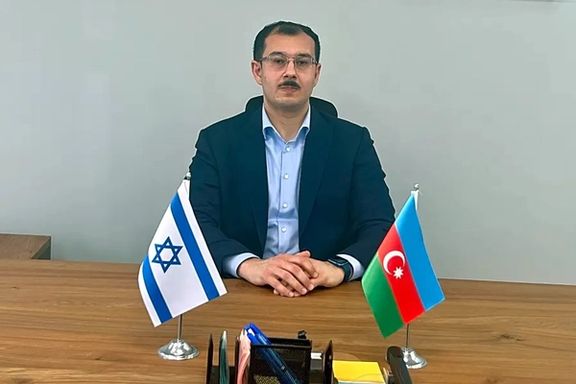
Azerbaijan's ambassador-designate to Israel Mukhtar Mammadov says his country would not let Israel’s military to use Azerbaijan as a base for a possible attack against Iran.

Azerbaijan's ambassador-designate to Israel Mukhtar Mammadov says his country would not let Israel’s military to use Azerbaijan as a base for a possible attack against Iran.
Denying previous reports about preparing an airfield to assist Israel during an attack on the Islamic Republic, Mammadov said in his first interview after arriving in Tel Aviv last week that Baku would not assist Israel in case it decides to attack Iranian nuclear facilities.
Mammadov also rejected reports that Azerbaijan would allow the Mossad to set up a branch in Azerbaijan to monitor what is happening in Iran.
“Azerbaijan, from the start, has declared that it will not interfere in the internal matters of other countries and will not allow its territory to be used against other countries,” the ambassador said. “This is because we expect other countries not to interfere in our internal matters.”
Iranian officials have been occasionally accusing Azerbaijan of allowing Israel to set up intelligence and military bases on its territory as an operational base against Iran.
The ambassador, who was set to present his credentials to President Isaac Herzog on Thursday, said “Every country is responsible for the protection and defense of their territorial integrity and the sovereignty of their citizens. Azerbaijan is no exception.”
His meeting was pushed off to a later undetermined date, as speculation has heightened over the possibility of an Israeli military attack against Iran, since the Islamic Republic appears close to producing weapons-grade uranium, according to The Jerusalem Post.
Azerbaijan and Israel have been increasingly public in their growing ties. While Israel has had an embassy in Azerbaijan since the 1990s, Azerbaijan formally appointed its first ambassador to the Jewish state in January.
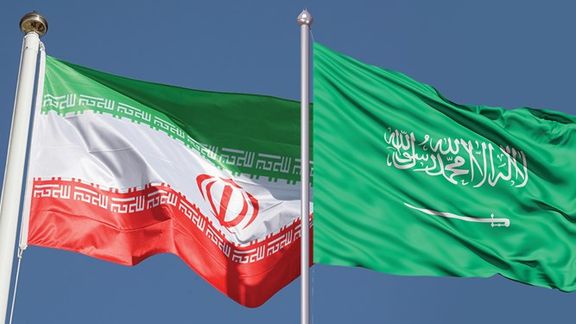
Regional countries and parties have welcomed an agreement in Beijing on Friday between Iran and Saudi Arabia to restore diplomatic relations.
A diplomatic advisor to the United Arab Emirates president said he welcomed the agreement.
"We welcome the agreement between Saudi Arabia and Iran to resume diplomatic relations, and we hail the Chinese role in this regard," Anwar Gargash tweeted.
"The UAE believes in the importance of positive communication and dialogue among the countries of the region towards consolidating the concepts of good neighborliness and starting from a common ground to build a more stable future for all."
Lebanon, a country in deep economic crisis and dominated by Iran-backed Hezbollah also welcomed the Saudi-Iranian agreement. Hezbollah leader Hassan Nasrallah in turn called it a “good development.”
Oman, which has good relations with both countries also welcomed the announcement, the foreign ministry said in a statement on Friday.
The chief negotiator of Yemen's Iran-backed Houthi movement said in a tweet on Friday that the region needs the resumption of "normal ties" between its countries, following the announcement the Riyadh-Tehran announcement.
"The region needs the resumption of normal ties between its countries for the Islamic nation to reclaim its lost security as a result of foreign interference," Mohammed Abdulsalam said.
Saudi Arabia kept Washington informed of its talks, but the United States was not directly involved, White House spokesman John Kirby said on Friday.
"The Saudis did keep us informed about these talks that they were having, just as we keep them informed on our engagements, but we weren't directly involved," Kirby told reporters.
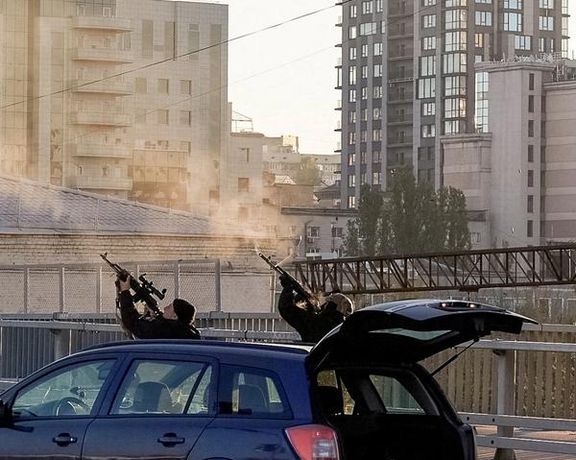
A new report has revealed that Russia is sending US and NATO weapons and equipment captured on the battlefield in Ukraine to Iran to be reverse-engineered.
In a report Friday, CNN cited four sources familiar with the matter as saying that Tehran has been trying to reverse-engineer the systems and probably produce similar ones.
According to the sources, US, NATO and other Western officials have seen several instances of Russian forces seizing smaller, shoulder-fired weapons equipment including Javelin anti-tank and Stinger anti-aircraft systems that Ukrainian forces have left behind on the battlefield.
In many cases, Russia has then flown the equipment to Iran to dismantle and analyze, likely so the Islamic Republic military can attempt to make their own version of the weapons, sources said, adding that Russia believes that continuing to provide captured Western weapons to Iran will incentivize Tehran to maintain its support for Russia’s war.
CNN report says US officials do not believe that the issue is widespread or systematic, and that it is not clear if Iran has successfully reverse-engineered any US weapons taken in Ukraine. The report added that since the beginning of the war the Ukrainian military has kept reporting to the Pentagon any losses of US-provided equipment to Russian forces.
Iran seems to be adept at developing weapons systems based on US equipment seized in the past. The Toophan anti-tank guided missile was reverse engineered from the American BGM-71 TOW missile, and the country also intercepted a US-made drone in 2011, a Lockheed Martin RQ-170 “Sentinel”, and reverse-engineered it to create a new drone.
The US is doing everything possible to counter the “burgeoning” military ties between Iran and Russia, the State Department said in February.

Iran and Saudi Arabia have agreed to re-establish diplomatic ties after Chinese-mediated talks in Beijing.
Over five days of negotiations, it was agreed that the two countries will reinstate embassies and missions after seven years of deadlock.
Saudi Arabia severed relations with the Islamic Republic in January 2016 after pro-government Iranian mobs attacked and ransacked its embassy in Tehran and consulate in Mashhad following the execution of a Saudi Shiite cleric.
Relations remained tense as Iran expanded its influence in Arab countries with substantial Shiite populations and built up its proxy forces opposed to Saudi Arabia and supporting Iran’s regional policies.
The most crucial bilateral tension was with Yemen, where Iran supported Houthi rebels against the remnants of the country’s legal government, supported by Saudi led forces. However, a truce has been holding since last year.
The Secretary of Iran’s Supreme National Security Council, Ali Shamkhani, ‘the representative of the Supreme Leader’, Saudi Arabia’s national security advisor Musaad bin Mohammed Al Aiban and China’s Wang Yi, Director of the office of the Central Foreign Affairs Commission of the Chinese Communist Party, all signed the deal.
China’s role in mediating the detente amid serious Western tensions with Iran signals the elevation of its status as a Middle East power player. Beijing has good relations both with Riyadh and Tehran and its success this week will irk other parties such as Qatar which has long tried to position itself as the region’s negotiator.
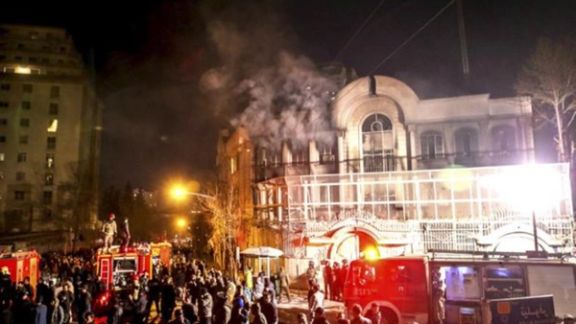
Reinstating relations with the most powerful Persian Gulf nation will be seen as a huge boost to Iran which is facing serious economic problems due to the lack of a nuclear agreement with the West and US sanctions weighing heavily over its finances. This has been exacerbated since the recent protests which began in September.
Meanwhile, the revived relationship does not alleviate Saudi’s concerns for the regime’s continued expansion of its nuclear capacity. Saudi Arabia and the United States have allegedly been in talks to build Saudi’s own civilian nuclear program as fears around Iranian actions grow and even the Persian Gulf's most powerful nation seeks greater security reassurances from its allies.
In spite of tense relations between the Biden administration and Crown Prince Mohammed Bin Salman, the de facto ruler, Saudi Arabia also wants fewer restrictions on US arms sales, according to the New York Times.
People close to the talks say the US is leveraging the request to force Saudi’s hand to normalize relations with Israel, furthering the Trump-negotiated Abraham Accords which saw the United Arab Emirates, Bahrain and Morocco sign up to diplomatic ties with the Jewish state. Sudan has since joined.
Saudi has long said that formal diplomatic relations with Israel depend on a peaceful resolution to the Israel-Palestine conflict, though the two have been conducting business and security cooperation behind closed doors for some time. Saudi also opened its air space to Israel, in the wake of the Accords, signed in 2020.
However, as revelations of Iran’s growing capabilities continue and the JCPOA talks look no more likely to be revived after their collapse last year, the Kingdom is seeking other options. It is no simple process.
The US has no desire to give Saudi nuclear capabilities - Biden having already stated a desire to make the Kingdom a “pariah state” following the execution of Saudi journalist Jamal Khashoggi in the Saudi embassy in Istanbul in 2018. In spite of a visit last year, relations between the two countries remain tense.
Such a deal would no doubt be greatly challenged in Congress where several Democrats have voiced a desire to downgrade not increase relations with Saudi Arabia, where dozens of executions continue each year, without trial, and human rights are still widely violated, according to rights groups.
Without the assurances of a body such as NATO, agreements to arm Saudi could be a huge risk and possibly the end of the Biden administration.
Senator Christopher S. Murphy, Democrat of Connecticut and a member of the Foreign Relations Committee and a vehement campaigner to limit US arms sales to Saudi, told the New York Times: “If we’re going to enter into a relationship with the Saudis where we’re doing more significant arms sales, it should be in exchange for better behavior toward the United States, not just better behavior toward Israel.”
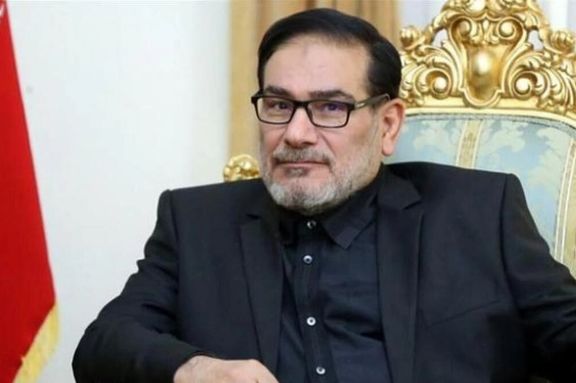
Iran's national security chief Ali Shamkhani, has been conducting “very important negotiations” in a foreign country in the past days, a website close to him reports.
Nour News said Friday that the results of these talks will be announced soon and will signal “noteworthy developments.”
There have been signs that the United States might be negotiating with Iran to secure the release of two Iranian-Americans held hostage in Tehran. Officials from Qatar and Oman have recently held frequent discussions with the Islamic Republic. The two Arab countries have maintained good relations with Tehran and have played the role of mediators in the past.
Iran International reported in January that US special envoy Robert Malley held several discreet meetings with Iran’s ambassador to the United Nations in New York.
At the time, the State Department did not deny the report and in response to questions by Iran International said that messages were being delivered to the Islamic Republic, even though the nuclear deal, JCPOA, “is not on the agenda.” That could mean warnings were being delivered to Tehran not to expand military ties with Russia or talks over dual-nationals held in Iran.
In the past, there have been multiple reports about a possible deal by which the US agrees to the release of $7 in frozen Iranian assets held in South Korea in exchange for the release of prisoners.
However, after Iran’s bloody crackdown on protesters, killing more than 500 civilians, and its supply of killer drones to Russia, a deal providing billions of dollars to the clerical regime could be politically costly for the Biden administration.
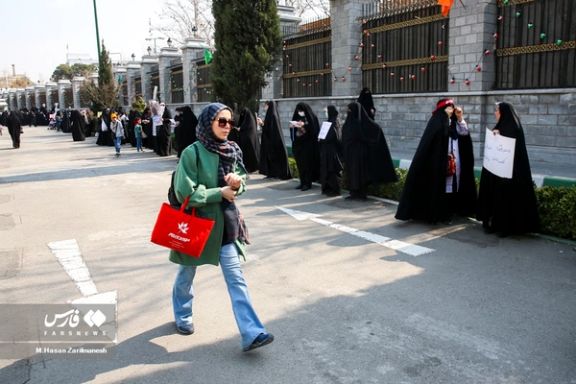
Iran's hardliners appear to be launching a new effort to enforce veiling laws more forcefully again to put a stop to women’s increasing defiance of the compulsory hijab.
At a meeting of the State Social Council Thursday, President Ebrahim Raisi described women’s abidance by veiling laws as a “sharia requirement” and said all authorities are of the same mind on this matter. “It is necessary for everyone to feel responsible, and although some people may have different opinions on this matter, in social life, adherence to legal standards should be considered as a principle".
He also claimed that the social experience of the Islamic Revolution has shown that the Iranian women themselves are adamant on keeping the veiling as a priority to ensure their safety and security in the society while also calling on all responsible entities to support those who practice ‘amr-e be marouf’, that is, calling others to enjoin what is good and forbid them from doing what is wrong.
This video shows a veiled woman taking photos of two young girls on the street and telling them the photos will be used to identify them with face recognition software.
Raisi’s very influential father-in-law, Ahmad Alamolhoda, who represents Supreme Leader Ali Khamenei in Khorasan-e Razavi Province, urged “pious” women and men not to allow the women in the Iranian society unveil. Making similar remarks about individual’s responsibility to enforce the hijab last week he had implied that the regime and its security apparatus are no longer able to take the burden of stopping those who defy the compulsory hijab.

Several videos have emerged on social media in the past few days of disputes in public over veiling between its proponents and the women who are now defiantly appearing ‘hijabless’ in public.
“You live in an Islamic society and you must abide by its law,” a veiled woman holding a baby in her lap in a city bus is seen telling another woman in a video apparently taken in Isfahan, but the ‘hijabless’ young woman who is filming the incident with her mobile phone, objects and tells her how she dresses is none of other people’s business. The veiled woman threatens her with filming her, sending it to authorities and causing her trouble in getting into university for her defiance of the hijab.
A veiled woman being thrown out of an underground car by a crowd of young girls after trying to exhort them about observance of hijab.
To enforce the veiling rules the regime has always used the so-called ‘morality police’ as well as organized groups of male and female Basij militia. It was in custody of the morality police that the 22-year-old Mahsa Amini suffered injuries that led to her death in September, fueling the longest-ever anti-regime protests in the country.
The morality police have been keeping a very low profile in the past few months but on Wednesday hardliner female lawmaker Zohre Elahian said in a tweet that Basijis held their first “verbal warning (amr-e be marouf) maneuver” in some areas of the capital.
“The devout Basijis’ act, after the recent domestic and foreign riots and seditions in the country, is unprecedented,” she tweeted with a hashtag calling on authorities for support.
A video posted Wednesday on Twitter showed a long line of black-veiled women parading on a street in Isfahan in central Iran. The post called the parade “the great and mighty maneuver of chaste Isfahani ladies.”
These “maneuvers” seem to be part of a larger initiative planned to bring anti-compulsory hijab movement under control before more women flaunt the hijab rules in the intense heat of the summer.